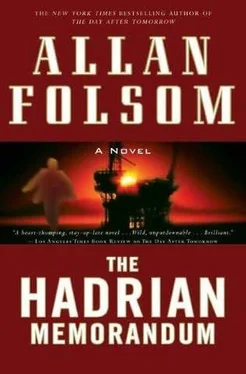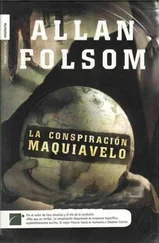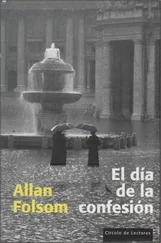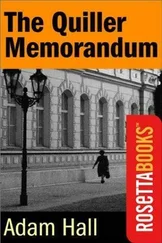8:50 A.M.
Ahead, to Marten’s right, was Gate B34 where a long line of passengers was in the process of boarding the London flight. To his left were toilets, a combination bookstore/newsstand/convenience store, and next to it a sandwich shop. He continued purposefully on and joined the line at Gate B34.
Twenty feet in front of him a slim, athletically built middle-aged man in a sport coat and blue jeans stood in the crowd waiting to board and at the same time absently watched Marten come toward him. Now he raised his hand as if to stifle a cough or clear his throat.
“This is Three. He’s just joined the passenger queue waiting to board,” he said softly into a microphone in his sleeve.
A male voice floated through an earpiece barely visible in his left ear. “ This is One. Thank you .”
“What do you want me to do?”
“ Stay with him and board behind him. Make sure he is on the aircraft when it pulls back from the ramp .”
“Right.”
Seconds earlier, by luck or by instinct, Marten had looked up and seen a middle-aged, athletic-looking man in sport coat and jeans, standing near the front of the line watching him and at the same time moving his lips as he held a hand to his mouth. Now Marten saw him drop his hand and casually move aside to speak with a uniformed British Airways agent near the boarding gate.
Right then he knew. Whatever he’d thought before, there was no question now, he was being watched. But by whom? Conor White and Anne Tidrow’s people? Operatives under the direction of the Army of the Republic of Equatorial Guinea?
And there wasn’t just one. The man had been communicating with someone, which meant there were two of them at least, maybe more.
8:52 A.M.
The ranks of boarding passengers were lessening rapidly as people entered the aircraft. The Athlete, as Marten had decided to call him, was still talking with the British Airways employee, gesturing as if he had some problem with his ticket or seating arrangement or something similar. Every so often he looked off, as if he were becoming frustrated with the direction of the conversation. That glance away and then back, Marten knew, was carefully calculated to keep an eye on him. See where he was in line. Make certain he was moving forward with the remaining passengers, whose number by now had dwindled to fewer than two dozen. Athlete or no Athlete, if Marten was going to get out of there, he had to do it soon.
“Excuse me.” He turned to a young woman in line behind him. “I have a splitting headache and need to get something for it before I get on the plane. Would you mind holding my place in line? I’ll be right back.”
With that he was gone, leaving the boarding area and crossing to the bookstore/newsstand/convenience store on the other side of the corridor.
Immediately the Athlete turned from the airline agent and raised his hand to his mouth. “He just left the boarding area and has gone into a newsstand across from it!” he blurted into his hidden microphone.
“Stay with him! Stay with him!”
8:55 A.M.
Marten entered the store in a rush looking for another exit. He pushed around a magazine stand and then past a rack filled with toiletries. No time to think about the Athlete-just find the exit and get out of there. But where? There was no other egress. In front of him was a wall of bestselling books. To his right, a large magazine rack. To his left, a floor-to-ceiling case of PARIS, FRANCE T-shirts and caps.
“Christ!” he said to himself and turned to look for another way out. As he did, the Athlete came into the store and stood in the entryway, his eyes scanning the room. Immediately Marten looked away. The only exit was the doorway where the man was. To use it he would have to walk right past him. The clock was fast ticking down. If he missed the Berlin flight, there was every chance people employed by Striker/SimCo or agents from the Equatorial Guinean army would be at Theo Haas’s doorstep before he was. Athlete or not, he had no choice but to go out past him and go now.
He was turning, starting to move, when a nearby door suddenly opened and a female clerk came out of a back room pushing a service cart piled with magazines and boxes of candy. In an instant Marten was past her and into the room looking for a service exit. All he saw was shelves full of supplies.
Immediately the clerk came in behind him. “Sir,” she said with a French accent, “you’re not allowed in here!”
“Sorry,” he said and turned back, disheartened. Then he saw an exit door to the side, a crash bar mounted across it just below a bright red warning sign.
EMERGENCY EXIT ONLY , it read, in French and English.
Marten studied it. Go through it and the alarm goes off. People come running from everywhere. Perfect.
8:59 A.M.
9:03 A.M.
Marten walked quickly, suitcase in tow, the blaring of the emergency exit alarm and the rush of security personnel toward the convenience store diminishing behind him as he left Hall 2B and moved through the throng of apprehensive travelers drawn by the sudden activity and toward Hall 2D and his destination, gate D55 and his 9:30 Air France flight to Berlin.
To his right, floor-to-ceiling windows looked out on other terminals across the way. Through them he could see that the bright, cloud-pocked sky of earlier had become completely overcast and large droplets of rain were splattering on the glass. Suddenly, even as he rushed for the plane and at the same time tried to evade the Athlete and his unseen players, the idea of rain brought memories of the storm in Malabo that he had feared might keep him grounded there for days. It was a reflection that carried with it the haunting memories of Bioko itself: Father Willy and the young boys clubbed to death by army troops; the bodies of the woman and children caught in the branches of the floating tree; the venomous features of the soldiers murderously pursuing him through the rain forest; the deadly, piercing eyes and tribal-scarred face of the army major who had interrogated him; the preposterous entrance of President Tiombe into the bar at the Hotel Malabo and the awful, chilling stare with which he had fixed Marten as he moved on.
Only one word could express his feelings about all of it.
Anger.
The people of Equatorial Guinea were victims of machinery and measures and dynamics far beyond their control. More infuriating still was the numbing realization that there was so very little that could be done about it. Father Willy had tried, done the very best he could, and he was dead because of it. Yet the thing was, no matter the outcome, he had tried, which was what Marten, in his own way, was attempting here. If he could somehow retrieve the photographs and get them to President Harris and Joe Ryder, it might be ammunition enough to pressure Striker and Hadrian and SimCo to stop arming the rebels and at the same time force Tiombe to pull back his forces, a combination that could quickly lessen the barbaric scope of the fighting. It wasn’t much, but if he could do it, it was something. And to Marten, as he hustled toward gate D55, that little bit of something meant everything.
9:07 A.M.
The Athlete was stopped midcorridor outside Hall 2B. Through the terminal’s glass wall he could see the British Airways London-bound aircraft pull back from the gate. He lifted a hand to his mouth. “This is Three,” he said quietly but with urgency. “Who’s got him?”
“This is Two. He came out of the gate area. Security swept in and we lost him. One?”
“I don’t have him.”
“There’s three of you out there! Somebody had to pick him up! Four, where are you?”
Silence.
“Four, repeat, where are you?”
Читать дальше












